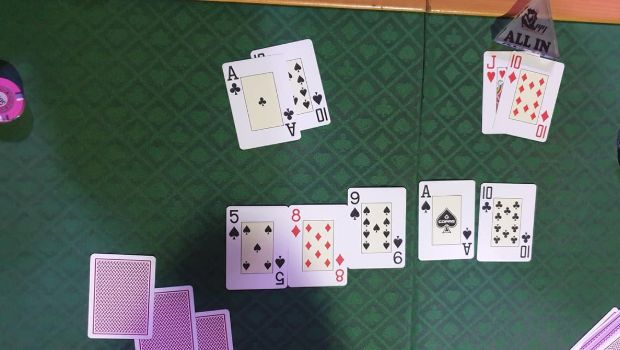4 Bitesize Poker Strategies for Beginners
March 29, 2021 10:16 am
Most people consider poker to be a game of chance. However, others would say poker is a card game that is not fully dependent on luck but also takes strategy to win big.
Enjoyed virtually everywhere around the world, poker is a game of cards where the players bet the value of their hand being greater than the other player’s hand, and subsequent players can only drop out or equal or raise the bet, and the player whose hand is the highest, in the end, wins the pot.
While winning in poker may greatly be out of luck as the player doesn’t control the cards dealt with them, in the long run, poker is still a game of skill. Players using strategy to play poker will definitely win more money compares to those that use luck and random decisions in the long run.
•Don’t limp first
Limping first is simply being the first to call the big blind preflop, resist the temptation, until at least one other player limps, which can give you good pot odds. You should otherwise avoid being the first one to limp because you not only can’t win the pot till another flops, but you are also likely to face multiple players from giving them enticing pot odds and lowering your chances of winning the pot.
•Play fewer hands but aggressively
Unless good luck is on your side, playing too many starting hands before the flop can bleed your chip stack. Develop a preflop strategy to improve your bottom line, and have the discipline to stick by the ranges. Play a range of strong payable hands tightly and aggressively while disguising your actual hand’s strength, so your opponents will find it hard to play against you. Fast-play and bet your strong hands, so you build the pot while also protecting your equity and making more money. Check raise when uncertain, or just bet where you were the preflop aggressor.
•Bluff aggressively and effectively
Bluff with your draws effectively at the table as your cards may dictate and keep your frequency under control. It means you bluff with flush draws, overcard, or straight draws hands that have outs that will later improve the best hand. Should your bluff be called, then the draws will be your backup plan.
Also, only play in the good games where there are players weaker than you and your chances of winning are large because otherwise, you will be the sucker in the game. You know you are playing a good poker game and stand a chance of winning if the re-raises are frequent or very rare, there is a player or two limping regularly, or the multiway pots are many.
•Only play when you are in the mood to play
Poker is a mentally intensive game that should also be fun, whether the player is a professional player or plays as a hobby. Only play poker when you are happy and feeling like playing, and when fatigue and frustration start to build up, quit the session. Playing poker when your mind is not in the game will likely have you lose tons of money.




